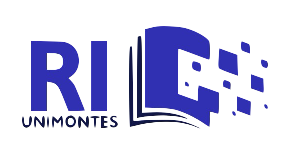Use este identificador para citar ou linkar para este item:
https://repositorio.unimontes.br/handle/1/478Registro completo de metadados
| Campo DC | Valor | Idioma |
|---|---|---|
| dc.contributor.advisor | Vieira, Fábia Magali Santos | - |
| dc.contributor.author | Andrade, Florência Vieira Pacheco | - |
| dc.date.accessioned | 2021-11-05T12:45:40Z | - |
| dc.date.issued | 2018-03-07 | - |
| dc.identifier.uri | https://repositorio.unimontes.br/handle/1/478 | - |
| dc.description.abstract | The present work aims to introduce the results of a research that had as objective - identifying and analyzing the dificulties of alphabetization and literacy in 6 students of the 6th grade of Escola Estadual Pio XII’s Elementary School, Januária — MG -, and contribute with the improvement in the writing levels throughout activities using the digital genre blog as a didactic resource of teaching, starting with the development of activities of writing, textual and digital genres, promoting multiliteracies. Our guiding hypothesis was that the work with the digital genre blog can contribute to improve the alphabetization and literacy levels of the students involved in this research. The methodological approach was of applied nature, classified as explanatory. The technical procedures used were bibliographic research, the action research and participant research. The bibliographical investigation allowed the construction of knowledge about concepts and theories regarding the object of the research, especially in the studies of Soares (2003, 2004, 2014), Lemle (1991), Cagliari (1995), Grossi (1990), Antunes , Marcuschi (2001, 2008), Bakhtin (1999), Rojo (2009, 2012), Kleiman (2005, 2008), Marcuschi and Xavier (2010), Coscarelli (2016) and Ribeiro (2016). In order to collect information for the quantitative analysis of the data, the data collection techniques were observation, questionnaire, Initial Writing Activity - AIE, in Portugese -, Educational Intervention Project - PEI, in Portuguese -, and Final Writting Activity (AFE, in Portuguese). The Educational Intervention Project - PEI was developed based on the guiding hypothesis that drove this research, in the learning metaphors of the XXI century, by David Thornburg (1996), through four learning modules, named Module 1: Meeting (Fire), Module 2: Dialoging (Water Well); Module 3: Reflecting (Cave); and Module 4: Practicing (Life). The analysis of the data collected in the AIE, PEI and AFE activities revealed that it was possible to raise the writing levels of the students who, although enrolled in the 6th year of elementary school, committed 1st and 2nd orders writing failures, as defined by Lemle (1991). Although they are not yet considered literate, the subjects of this research evolved in writing. | pt_BR |
| dc.description.sponsorship | CAPES | pt_BR |
| dc.language.iso | pt_BR | pt_BR |
| dc.subject | Gêneros digitais | pt_BR |
| dc.subject | Letramento | pt_BR |
| dc.subject | Multiletramentos | pt_BR |
| dc.subject | Produção escrita | pt_BR |
| dc.title | Gêneros digitais e multiletramentos: novas práticas pedagógicas em sala de aula | pt_BR |
| dc.type | Dissertacao | pt_BR |
| dc.subject.area | Linguistica, Letras e Artes | pt_BR |
| dc.subject.subarea | Letras | pt_BR |
| dc.description.resumo | O presente trabalho pretende apresentar os resultados de uma pesquisa que teve como objetivo identificar e analisar as dificuldades de alfabetização e de letramento de 06 alunos do 6º ano do Ensino Fundamental da Escola Estadual Pio XII, Januária – MG, e contribuir para a elevação dos níveis de escrita, por meio de atividades utilizando o gênero digital blog como recurso didático de ensino, a partir do desenvolvimento de atividades de escrita, gêneros textuais e digitais, promovendo os multiletramentos. Nossa hipótese diretriz foi a de que o trabalho com o gênero digital blog pode contribuir para elevar o nível de alfabetização e do letramento dos alunos envolvidos nesta pesquisa. A abordagem metodológica foi de natureza aplicada, classificada como explicativa. Os procedimentos técnicos utilizados foram a pesquisa bibliográfica, a pesquisa-ação e a pesquisa participante. A investigação bibliográfica permitiu a construção de conhecimento sobre conceitos e teorias sobre o objeto da pesquisa, principalmente nos estudos de Soares (2003, 2004, 2014); Lemle (1991); Cagliari (1995); Grossi (1990); Antunes (2003); Marcuschi (2001, 2008); Bakhtin (1999); Rojo (2009, 2012); Kleiman (2005, 2008); Marcuschi e Xavier (2010); Coscarelli (2016) e Ribeiro (2016). Com o objetivo de coletar informações para análise quantitativa dos dados, as técnicas de coleta de dados foram observação, questionário, Atividade Inicial de Escrita – AIE, Projeto Educacional de Intervenção – PEI e Atividade Final de Escrita – AFE. O Projeto Educacional de Intervenção – PEI foi desenvolvido a partir da hipótese diretriz que norteou esta pesquisa, baseadas nas metáforas de aprendizagem do século XXI, de David Thornburg (1996), por meio de quatro módulos de aprendizagem, nomeados de Módulo 1: Conhecendo (Fogueira), Módulo 2: Dialogando (Poço d’água); Módulo 3: Refletindo (Caverna); e Módulo 4: Praticando (Vida). A análise dos dados coletados nas atividades AIE, PEI e AFE revelou que foi possível elevar os níveis de escrita dos alunos que, apesar de matriculados no 6º ano do Ensino Fundamental, cometiam falhas de escrita de 1ª e 2ª ordens, conforme definidas por Lemle (1991). Embora ainda não sejam considerados alfabetizados, os sujeitos desta pesquisa evoluíram na escrita. | pt_BR |
| dc.embargo.terms | aberto | pt_BR |
| dc.embargo.lift | 2021-11-06T12:45:40Z | - |
| dc.contributor.referee | Mendes, Maria Aparecida Colares | - |
| dc.contributor.referee | Maia, Maria Jacy Veloso | - |
| Aparece nas coleções: | Dissertações | |
Arquivos associados a este item:
| Arquivo | Descrição | Tamanho | Formato | |
|---|---|---|---|---|
| FLORÊNCIA VIEIRA PACHECO ANDRADE.pdf | 8,81 MB | Adobe PDF | Visualizar/Abrir |
Os itens no repositório estão protegidos por copyright, com todos os direitos reservados, salvo quando é indicado o contrário.
